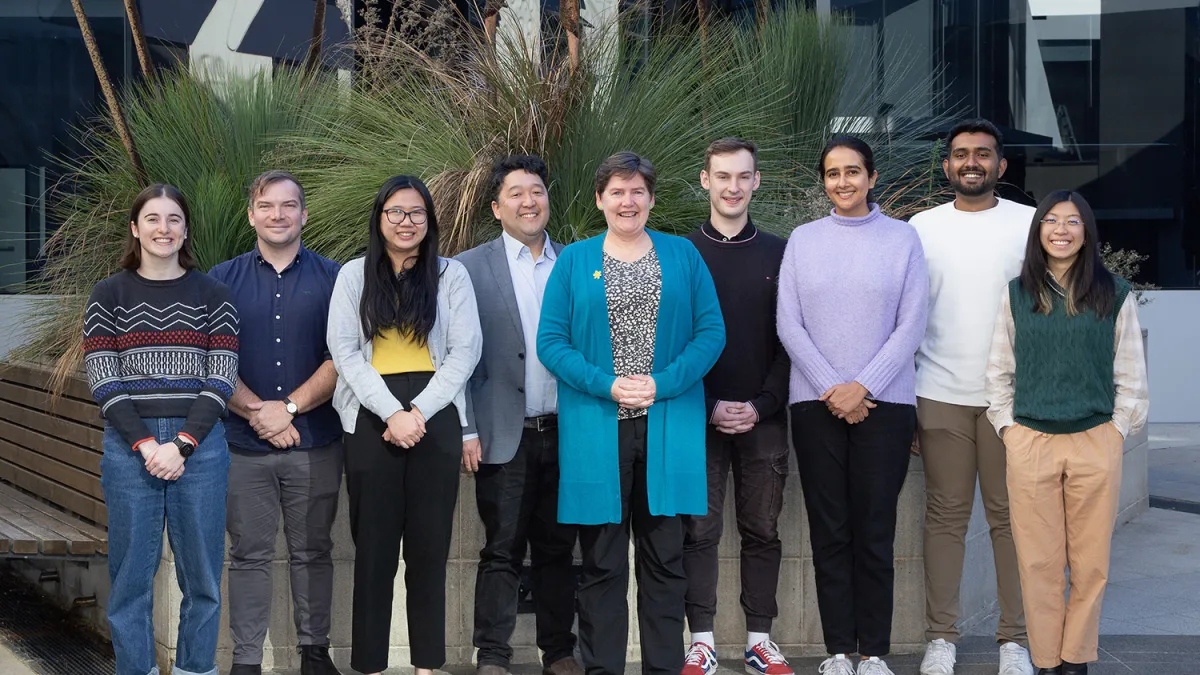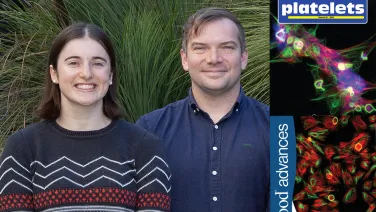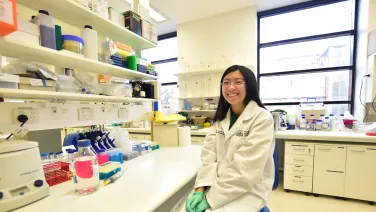
The Gardiner Group - Mechanisms of Thrombosis and Cancer
The group investigates the molecular basis of processes coordinated by platelets across vascular biology.
Research themes
About
The Gardiner Group - Mechanisms of Thrombosis and Cancer relocated to the ACRF Department of Cancer Biology and Therapeutics in The John Curtin School of Medical Research at ANU in 2016. Circulating platelets have the ability to influence a wide range of seemingly unrelated pathophysiologic events beyond the platelet’s traditional role in haemostasis and thrombosis. Emerging research shows that platelets orchestrate the complex interplay between haemostasis, thrombosis, inflammation, and cancer. These physiologically important processes during an inflammatory response can become pathologic and support transformation and cancer progression.
Since establishing her laboratory in JCSMR, ANU, Elizabeth has established the National Platelet Research and Referral Centre (NPRC) which seeks to improve our understanding of platelet disorders and identify the most effective treatment options through collaborative and targeted research approaches.
Platelets and the Hallmarks of Cancer: (Franco et al., Blood 2015)
- Metastasis and evading immune surveillance
- Resisting tumour cell apoptosis
- Sustaining tumourigenesis
- Inducing angiogenesis
- Supporting cancer stem cells
The group investigates the molecular basis of processes coordinated by platelets across vascular biology. Primary areas of interest focus on the biochemical and molecular analysis of immune-based platelet disorders seen clinically in immunothrombocytopenia (ITP), thrombotic thrombocytopenic purpura (TTP) and heparin-induced thrombocytopenia (HIT) and the group has expanded their core interest to focus on thrombosis associated with cancer.
Further, the group specialises in applying unique flow cytometry and platelet aggregometry tools to aid in the characterisation of platelet-based deficiencies underlying unexplained bleeding in people with healthy platelet counts and normal blood coagulation.
Important discoveries made by the Group
- Identification of platelet receptor loss in people with early and late-stage leukaemia and the consequences of treatment with new and existing therapeutics on bleeding risk in these individuals
- The identification and molecular characterisation of processes underlying ligand-dependent, metalloproteinase-mediated shedding of the primary adhesion/signalling receptors on platelets, glycoprotein (GP)VI and GPIba of the GPIb-IX-V complex.
- The link between engagement of platelet Immunoreceptor Tyrosine-based Activation Motif (ITAM)-signalling and activation of A Disintegrin And Metalloproteinase (ADAM) family members.
- A new role for active factor X (FXa) in triggering platelet receptor shedding, with bleeding implications for individuals with disseminated intravascular coagulation (DIC) and other coagulopathies.
- The identification and quantification of rapid and acute changes in ADAMs metalloproteolytic activity upon brief exposure to elevated shear stress (10,000 s-1, 1 minute) and the implications that this pathway might have in patients with aortic stenosis, stroke and in people requiring mechano-circulatory support (LVADs, ECMO).














